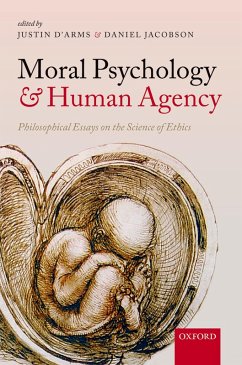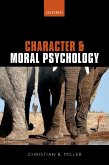These ten original essays examine the moral and philosophical implications of developments in the science of ethics, the growing movement that seeks to use recent empirical findings to answer long-standing ethical questions. Efforts to make moral psychology a thoroughly empirical discipline have divided philosophers along methodological fault lines, isolating discussions that will profit more from intellectual exchange. This volume takes an even-handed approach, including essays from advocates of empirical ethics as well as those who are sceptical of some of its central claims. Some of these essays make novel use of empirical findings to develop philosophical research programs regarding such crucial moral phenomena as desire, emotion, and memory. Others bring new critical scrutiny to bear on some of the most influential proposals of the empirical ethics movement, including the claim that evolution undermines moral realism, the effort to recruit a dual-process model of the mind to support consequentialism against other moral theories, and the claim that ordinary evaluative judgments are seldom if ever sensitive to reasons, because moral reasoning is merely the post hoc rationalization of unthinking emotional response.
Dieser Download kann aus rechtlichen Gründen nur mit Rechnungsadresse in A, B, BG, CY, CZ, D, DK, EW, E, FIN, F, GR, HR, H, IRL, I, LT, L, LR, M, NL, PL, P, R, S, SLO, SK ausgeliefert werden.









